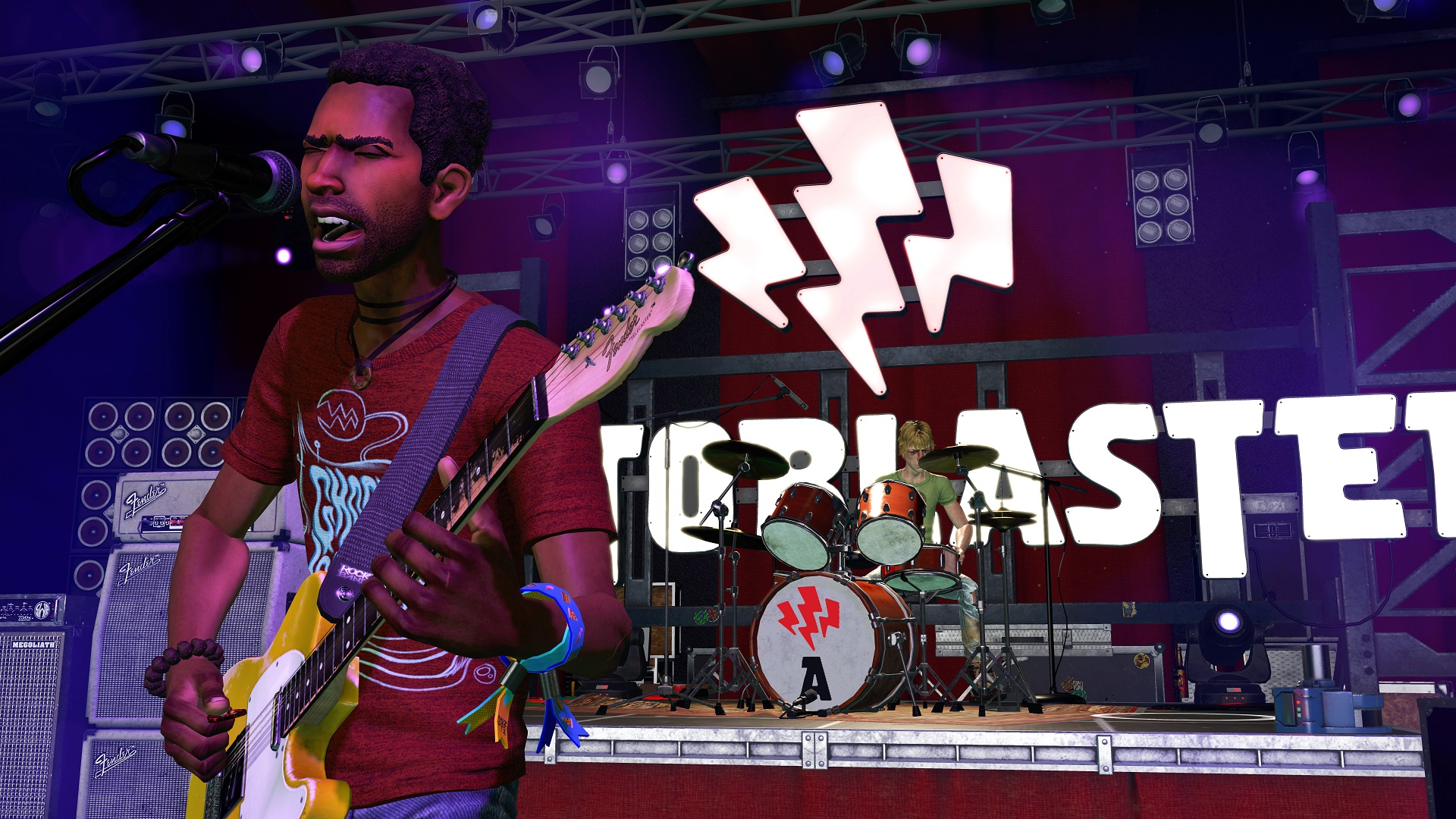Rock Band VR Ditches the Band, Goes Solo
Rock Band VR drops perfectionist note-by-note shredding, but its innovative, intense single-player rock-star fantasy might just be worth it.
Here at Tom’s Guide our expert editors are committed to bringing you the best news, reviews and guides to help you stay informed and ahead of the curve!
You are now subscribed
Your newsletter sign-up was successful
Want to add more newsletters?

Daily (Mon-Sun)
Tom's Guide Daily
Sign up to get the latest updates on all of your favorite content! From cutting-edge tech news and the hottest streaming buzz to unbeatable deals on the best products and in-depth reviews, we’ve got you covered.

Weekly on Thursday
Tom's AI Guide
Be AI savvy with your weekly newsletter summing up all the biggest AI news you need to know. Plus, analysis from our AI editor and tips on how to use the latest AI tools!

Weekly on Friday
Tom's iGuide
Unlock the vast world of Apple news straight to your inbox. With coverage on everything from exciting product launches to essential software updates, this is your go-to source for the latest updates on all the best Apple content.

Weekly on Monday
Tom's Streaming Guide
Our weekly newsletter is expertly crafted to immerse you in the world of streaming. Stay updated on the latest releases and our top recommendations across your favorite streaming platforms.
Join the club
Get full access to premium articles, exclusive features and a growing list of member rewards.
SAN FRANCISCO — What is Rock Band without a rock band? This isn't a Zen riddle; it's a question Harmonix poses in Rock Band VR, the latest entry in the long-running rhythm series. Rock Band VR strips away the franchise's best-in-class multiplayer and the perfectionist note-by-note shredding, but its innovative, intense single-player rock-star fantasy might just be worth it.

I got a chance to shred some chords for myself at GDC 2017, and while I wasn't totally won over by Rock Band without multiplayer, the idea has a lot more potential than I initially thought. Moving the experience into VR makes the game even more immersive than before, and focusing on single-player gives gamers the opportunity to experience a narrative-driven campaign about the inner workings of a band, complete with fleshed-out characters who react to your performance.
MORE: Most Anticipated Games
The biggest difference between Rock Band VR and its predecessors, though, is mechanical. Instead of following along with a fretboard full of individual notes, Rock Band VR is all about chord patterns. You'll seldom play single notes in sequence; instead, you'll have to learn how to form different chord styles on your guitar peripheral. You might transition to power chords to barre chords to arpeggios in the course of a single verse, and how fluidly you do so — along with how accurately you maintain the song's rhythm — is what determines your score.
Changing from notes to chords may sound easy in principle, especially since the team at Harmonix has worked to ensure that no matter what you play, it will sound in-tune with the rest of the song. (The game will feature a Freestyle mode in which you can toy around to your heart's content to see how your favorite tracks sound with totally different chord interpretations.) However, learning which chords complement which song structures is part of the game's challenge, and the game will reward players who stay close to a song's original interpretation.
I played through "Everlong" by the Foo Fighters, for example. As any guitar player knows, Everlong is dependent on a progression of major and suspended chords in a tight, idiosyncratic rhythm. When I stuck to power chords, suspended chords and parallel octaves, I racked up all sorts of bonuses. Experimenting with barre chords and arpeggios sounded novel, but didn't do quite as well.
The game will often prompt you with the first sequence of a chord, but after that, it's up to you to figure it out. It can be challenging, but the real draw here is that it doesn't take much skill to make interesting music.
Get instant access to breaking news, the hottest reviews, great deals and helpful tips.
Rock Band VR may not be as simple to pick up and play as its predecessors, especially since you can no longer play with friends. But it’s a take on the rhythm genre that we haven’t seen before, and that’s a rare thing in and of itself.
The game will launch for the Oculus Rift on March 23, and retail for $70 with a guitar peripheral included.

Marshall Honorof was a senior editor for Tom's Guide, overseeing the site's coverage of gaming hardware and software. He comes from a science writing background, having studied paleomammalogy, biological anthropology, and the history of science and technology. After hours, you can find him practicing taekwondo or doing deep dives on classic sci-fi.
 Club Benefits
Club Benefits










